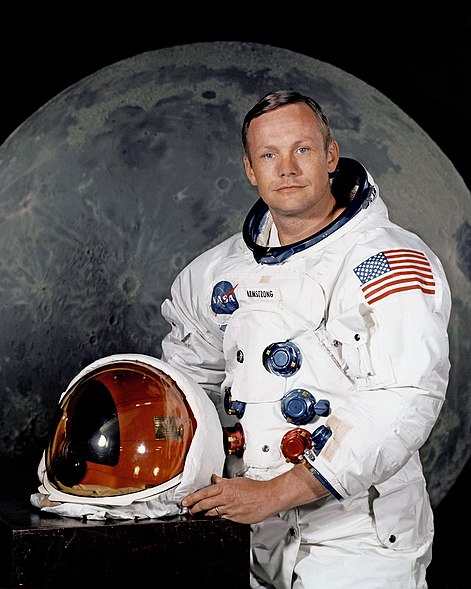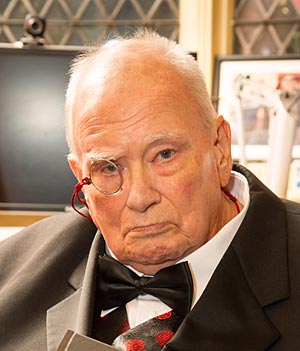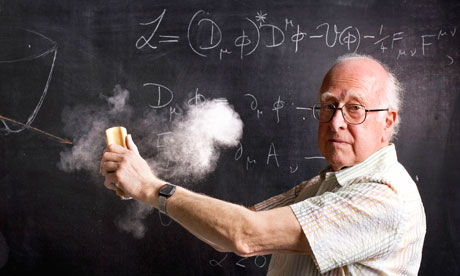|
Dr Helen Czerski, Physicist and oceanographer, is a well-known BBC science presenter. Her work includes the major BBC2 series ‘Orbit: Earth’s Extraordinary Journey’, broadcast in March 2012. Recently she filmed Operation Iceburg for BBC2 and is a contributor to Dara O’Briain’s Science Club.
|
 |
She agreed to answer a few questions I had…
Science and Popularisation
What first got you involved in science, and in particular physics?
I don’t really feel that I ever “got involved” – it was just something I did and was interested in. I’m lucky that my parents encouraged us to experiment with the world in a non-pushy way – if I said “what happens when you do that?”, they’d just say “well, let’s try it and see”. I must have shown some specific interest in physics early on because my mum bought me a copy of “A brief history of time” when I was 10 or 11. But I was interested in all sorts of things, like dinosaurs and making stuff from clay, building treehouses, environmental issues, baking and languages. My parents just encouraged us in whatever we were interested in, and the strongest and most important message I ever got from them was “do your best”. That’s crucial – they weren’t bothered about whether we succeeded or not, but they valued trying things out. And they wanted us to be happy far more than they wanted “success”.
As time went on, I think that I chose to read a lot of popular physics books, and I knew from fairly early on that my interested tended towards the sciences. But I very consciously took every opportunity to study other things, because I felt that I’d do enough science later on.
How did you get involved in the popularisation of science?
Well, going right back, I remember giving a talk on atomic physics to the local women’s group (which my mother was part of) when I was 17. So I suppose that counts as the first time I did anything like that. My Dad has always said that I’m a natural teacher, and when I was younger that mostly came out in the sports coaching that I did. During my PhD, I got involved in doing demonstrations during National Science and Engineering Week, and that led to other public lectures and talks. I was always happy to share my enthusiasm for science, and if that meant fun demos, so much the better!
Which medium do you think is the most effective at popularising science?
There is no one medium, because what you say is not anywhere near as important as what your audience hears. If you say something in a format that your audience doesn’t see, it’s pointless. So the most effective medium is whatever your audience finds most convenient, and that’s different for every individual. Obviously, tv has a huge reach, but the ways that people get information are changing over time. I think that the one thing that will always be popular is seeing an enthusiastic and charismatic individual in person, and being brought into the world of the human being who is standing right in front of you. In an ideal world, we wouldn’t have “science popularization” because everyone who works or uses science and technology would naturally share their knowledge of it with the people around them, and that would be the most effective way of encouraging enthusiasm for science.
What, in your opinion, should be the ultimate goal of science popularisation?
To dispense with the need for conscious science popularization. It’s not a phrase I like. I think that we need science to be part of our culture just like music, literature, art, politics and economics, and we can all have some level of natural curiosity about it. I would love everyone to appreciate science as an important and fascinating part of their world, and to be able to find out as much about it as they liked. In an ideal world, it would be valued appropriately, and it wouldn’t be necessary to “popularize” it.
What were the challenges for you during the filming of Operation Iceberg?
Being in between two worlds. Usually, in that environment, I’m there either because I’m doing my own experiment or I’m there because I’m filming a tv programme. This time, I was halfway – slightly more on the tv side of things, and without an experiment that I was responsible for by myself. I found that very odd – it was like being the only person in the room who spoke two languages when everyone else only spoke one or the other.
We really enjoyed science club, did you enjoy making it?
The studio days for science club have been some of my favourite days this year. It really is like an inclusive club of fun people, and everyone has something interesting to contribute.
Are we going to see a lot more of you on the BBC?
I’m working on a couple of other programmes at the moment. The one I’m spending most of my time on at the moment is a BBC4 programme all about bubbles.
Research
Can you say a few words about your research?
I study the bubbles underneath breaking waves, and how they break apart and join together in different conditions. This is important because these bubbles act as a transport mechanism between the atmosphere and the ocean, and we need to understand the small-scale mechanisms contributing to global-sized transport effects. I like it because it’s physics that happens on a scale that you can see. My lab experiment is the size of a bench, and you can really see what’s happening. I’m much more interested in phenomena that I can see directly, rather than quantum mechanical things that I can’t experience directly, or cosmological things that are far too far away ever to touch. What gets me going is “the physics in the middle”.
Which one of your papers are you most proud of, and why?
I was the first person to measure the thickness of the coating surrounding an ocean bubble in situ. All ocean bubbles are coated with a thin layer of organic material (effectively natural bubble bath), and it controls a lot of their behaviour but it’s hard to measure. You can’t take the bubble out of the water to look at it directly. I used a combination of acoustical and optical techniques to estimate the coating thickness while the bubble was still in the ocean, from a data I collected in the Pacific. I like it because it was a novel use of experimental data, and I hadn’t thought that I could make that measurement before I collected the data. It was a minor eureka moment when I realized that I could.
What are the major questions faced today in you area of research?
The biggest question is how to integrate all the many effects that work together to influence how our planet works. There are too many for any one person to be able to hold them in their head. How do we manage the data so that we can still get insights into what it means? How do we integrate all the biological, chemical, physical and geological data to test our models accurately? When data sets are too big for a human to hold them in their mind, we lose the human’s amazing ability to recognize patterns. How do we compensate for that?
Anything else?
I think that the world around us is full of physical toys – everyday things that we are completely used to, but which are each an amazing demonstration of some scientific principle. You don’t need to go to far away places or use special microscopes to see fascinating things. They’re all around you. The world would be a richer place if everyone got a bit better at looking at everyday phenomena and asking a few more questions than normal.
About Helen
 |
Helen is a Physicist, oceanographer and broadcaster with a passion for science, sport, books, creativity, hot chocolate and investigating the interesting things in life. She currently works at the Institute for Sound and Vibration Research in Southampton, and is a science presenter for the BBC.
|
You can find out lots more about Helen via her website.




 Prof. Higgs
Prof. Higgs Computer simulation of particle traces from an LHC collision in which a Higgs Boson is produced. © CERN. Image credit: Lucas Taylor
Computer simulation of particle traces from an LHC collision in which a Higgs Boson is produced. © CERN. Image credit: Lucas Taylor




